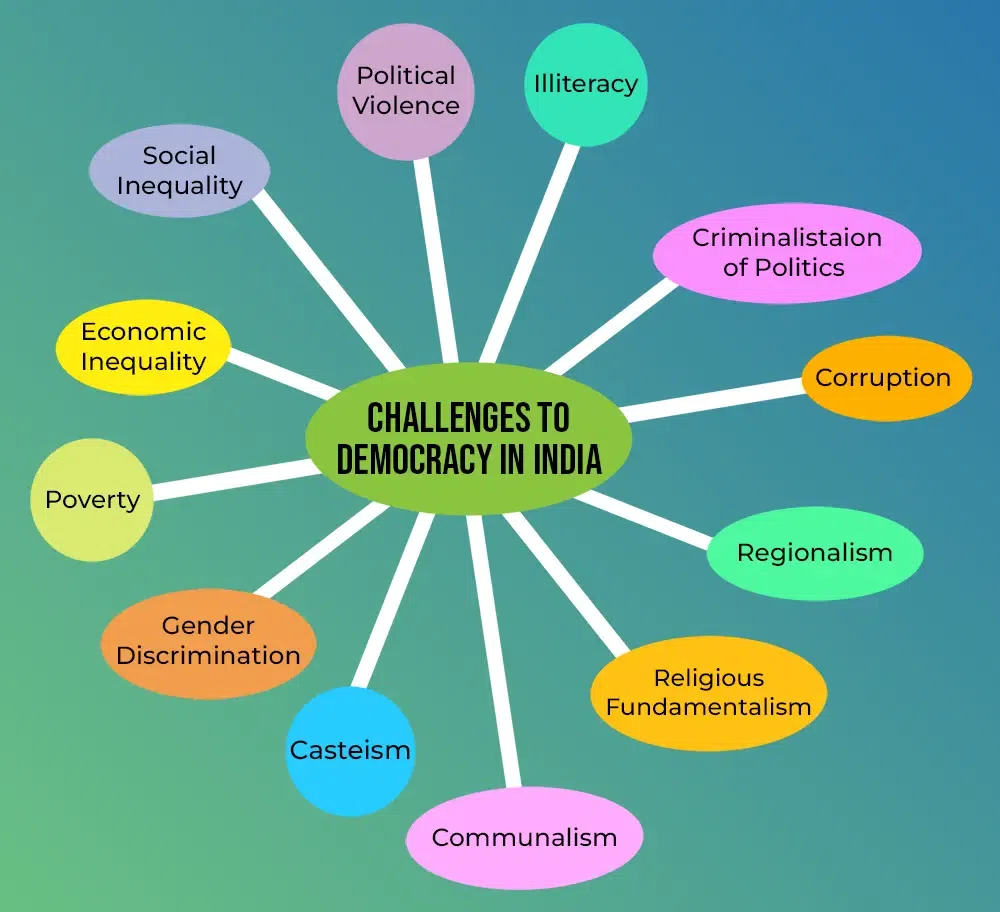- It’s worth remembering that the Indian democratic system functions with a strongly constructed federal structure where the authorities are unambiguously demarcated. The Central Government at the Centre and the State Governments at the state level discharge their responsibilities as enunciated in the Constitution. The Constitution of India has specifically delineated the responsibilities of the executive, the legislature, and the judiciary in line with the democratic form of governance, which is by the people, for the people, and of the people. However, the Indian political system is largely based on the labyrinthine caste equations despite the Constitution barring any prejudice vis-à-vis caste, creed, class, religion, and ethnicity.

PC:Grand Strategy: The View from Oregon – WordPress.com
- Also, the communal versus secular narrative that has overtaken the political discourse in the country is no secret. Plus, the increasingly polarized narrative dividing society on the majority versus minority communities has only added to the already muddied waters. Thus, the one-upmanship between the two national parties and the regional parties aligning with them has become the established norm of late. The animosity between the two national parties and their alliance is known across the political spectrum. What is also a disconcerting bit of news if the inter-state trade curbs being bandied about is a new trend that goes against the tenet of the federal structure so transparently established by the constituent assembly members.

PC:GeeksforGeeks
- Look at how the West Bengal government has gone about curbing the inter-state trade on a whim. Such a situation is robbing the producers of the national market. Bengal cops posted on state borders have strict orders: the spud stops here. Seasonal price rise has nudged Bengal govt to halt potato-laden trucks destined for Odisha and Jharkhand. It’s a case of my aloo posto versus their aloo bharta and chokha. Wholesale and retail prices have jumped in both neighbouring states. Last Saturday, potatoes were retailing for Rs.40 a kilo in Jharkhand. An Odisha minister warned: Bengal also depends on other states for fish and other items, and those trucks pass through Odisha. You can see shades of a US-China standoff here.

PC:Free Press Journal
- Recollect how this situation panned out in July-Aug also when Bengal’s own traders complained about huge losses. Truckloads of potatoes would rot because they couldn’t be put back in cold storage, they said. So, bans might be good optics politically but bad economics. We keep running into them nonetheless in different guises. Indeed, the Karnataka dairy federation’s resistance to Amul’s entry before state elections in April 2023 comes to mind as well. Yes, we saw mundane political statements, street protests, and a hoteliers’ boycott. A simple matter of consumer choice became a political cause, an election issue, and a case of aggressive sub-nationalism. Internal trade is an economy’s lifeblood, and to grow fast we need much more of it, not restrictions.






